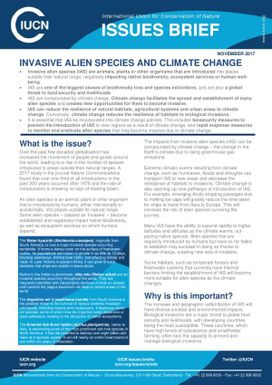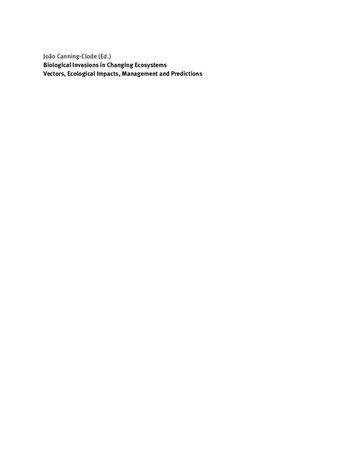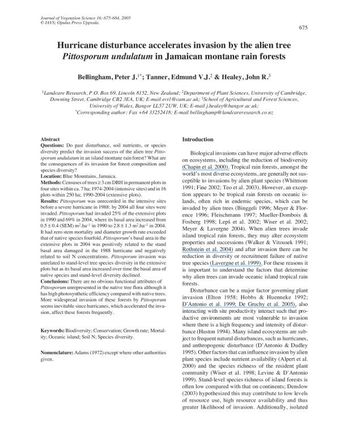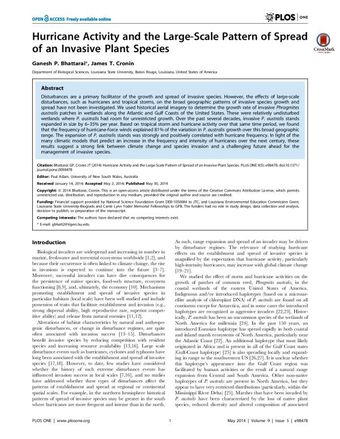Invasive Alien Species and Climate Change - International Union for Conservation of Nature Issues Brief November 2017
- Description:
- Invasive alien species (IAS) are animals, plants or other organisms that are introduced into places outside their natural range, negatively impacting native biodiveristy, ecosystem services or human well-being. IAS are one of the biggest causes of biodiversity loss and species extinctions and are also a global threat to food security and livelihoods. IAS are compounded by climate change. Climate change facilitates the spread and establishement of many alien species and creates new opportunities for them to become invasive. IAS can reduce the resilience of natural habitats, agricultural systems and urban areas to climate change. Conversely, climate change reduces the resilience of habitats to biological invasions. It is essential that IAS be incorporated in to climate change policies. This includes biosecurity measures to prevent the introduction of IAS to new regions as a result of climate change, and rapid response measures to monitor and eradicate alien species that may become invasive due to climate change.
- Display date:
- 2017
- Collections:
- Secretariat of the Pacific Regional Environment Programme (SPREP)
- Publisher:
- International Union for Nature Conservation (IUCN)
- Content partner:
- Secretariat of the Pacific Regional Environment Programme (SPREP)
- Availability:
- Not specified
-
Copyright status: All rights reservedFind out more about what you are able to do with this itemThis item is all rights reserved, with means you'll have to get permission from Secretariat of the Pacific Regional Environment Programme (SPREP) before using it. For more information, please see our use and reuse page.What can I do with this item?Non-infringing useNZ copyright law does not prevent every use of a copyright work, and this item may be hosted by an international institute or organisation. You should consider what you can and cannot do with a copyright work.No sharingYou may not copy and/or share this item with others without further permission. This includes posting it on your blog, using it in a presentation, or any other public use.No modifyingYou are not allowed to adapt or remix this item into any other works.No commercial useYou may not use this item commercially.
Related items
Welcome and warm Pasifik greetings
The information on this site has been gathered from our content partners.
The names, terms, and labels that we present on the site may contain images or voices of deceased persons and may also reflect the bias, norms, and perspective of the period of time in which they were created. We accept that these may not be appropriate today.
If you have any concerns or questions about an item, please contact us.



